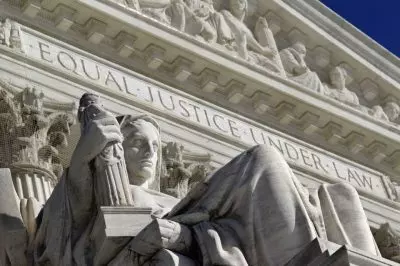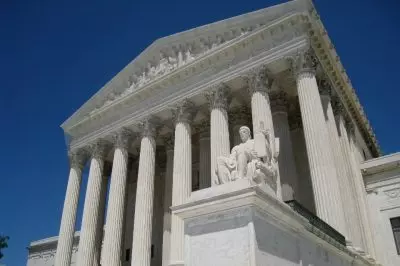 One of the most discussed topic in the last several months has been the potential overruling of the Professional and Amateur Sports Protection Act of 1992 by the United States Supreme Court and this Monday brought the official decision affecting the states which are yet to legalize sports betting. Following the official ruling of SCOTUS, every state will have the chance to make the decision whether to legalize sports betting across its gambling facilities or to retain its current position.
One of the most discussed topic in the last several months has been the potential overruling of the Professional and Amateur Sports Protection Act of 1992 by the United States Supreme Court and this Monday brought the official decision affecting the states which are yet to legalize sports betting. Following the official ruling of SCOTUS, every state will have the chance to make the decision whether to legalize sports betting across its gambling facilities or to retain its current position.
Many businesses in the gambling industry have been eagerly anticipating the official decision of the Supreme Court, as it has the potential to completely change the way gambling is perceived across the states. It is also expected to make sports betting one of the preferred ways of gambling since there are many people participating in this kind of activity in the states which allow it. Moreover, illegal sports wagering has been in existence for many years now and all the money generated from it are not being invested back in the community, but instead, are utilized by the illegal betting operators themselves.
With the official ruling of SCOTUS, these days will soon be long gone and every state which has devoted efforts to preparing regulations for the future field will have the chance to put them in action. The Supreme Court made its position clear after the 6-3 ruling which scraped the Protection Act from 1992 and considered it outdated and no longer needed. Many experts in the field had previously expressed their certainty that sports betting will be considered legal in the foreseeable future, as it is a way of fixing any pending state budget holes, as well as making sure a large amount of money does not sink into the gray area of illegal sports betting.
Expectations for the Future Field
 Football, basketball, baseball, as well as other sports, will be considered a part of the sports betting industry from now on. Over the span of the following five years as many as 32 states are expected to make their way into the new sector and offer sports betting to their residents and guests.
Football, basketball, baseball, as well as other sports, will be considered a part of the sports betting industry from now on. Over the span of the following five years as many as 32 states are expected to make their way into the new sector and offer sports betting to their residents and guests.
Sportsbook operator William Hill has made the announcement that New Jersey is going to welcome its offerings as soon as possible over the span of the next weeks. MGM Resorts also claimed that sports wagering will be offered in its venues across the states which decide to give their nod. The news does not come as a surprise to anyone as many businesses in the sports betting sector have been preparing their offerings for the potential launch of sports betting. Reacting fast to the changing circumstances and offering their products and sports betting solutions is what sportsbook operators have been waiting for.
Up to this point, the only exceptions of the said Act were the states of Nevada, Montana, Oregon, and Delaware, where wagering on sports had received a green light to some extent prior to 1992. The state of Nevada stood out with its decision to permit betting on the outcome of a given match. In a way, this decision puts an end to Nevada’s monopoly of sorts over the sports betting offerings and the field. This eagerly-anticipated decision comes as a result of the case from New Jersey which has been expecting the final saying for quite some time now.
The state has made it clear that it considers the Congress’ decision to pass the PASPA in 1992 a move which somewhat exceeds its authority. According to its official position regarding the matter, the constitution has it all covered when it comes to the authority of the Congress and passing laws which ban sports betting is among the things which it allows.
However, in the meantime, it does not have the right to tell states how to manage the field and to prohibit sports wagering across them. With this final decision of the SCOTUS, the door to sports betting in the US is open and the following months are expected to see a fast-paced development of the field.